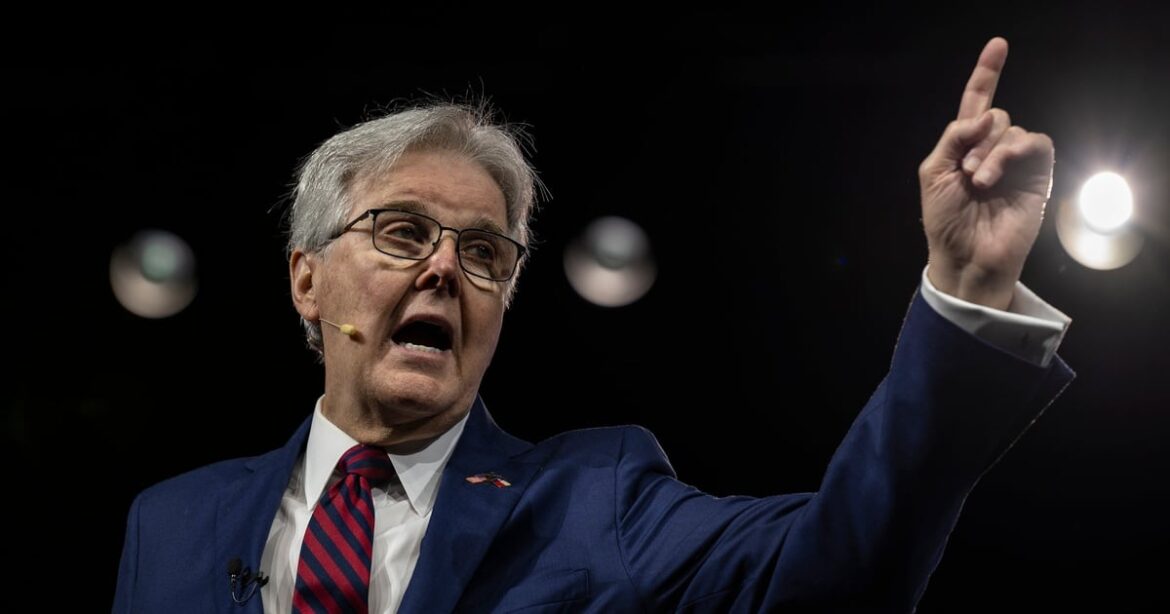Texas Lt. Gov. Dan Patrick Pushes for Legislative Changes on THC and Bail Laws
In a decisive move, Lieutenant Governor of Texas, Dan Patrick, has indicated his intent to compel the Legislature to enter a special session if lawmakers do not act on significant measures concerning the ban of THC and revisions to the state’s bail laws prior to the session’s conclusion in early June.
Patrick’s Leverage and Legislative Dynamics
While the authority to call a special session resides with Governor Greg Abbott, Patrick possesses the power to obstruct legislation in the Texas Senate, a tactic he might employ to exert pressure for a special session. This strategy mirrors his actions in 2017 when he blocked vital legislation to push for his policy agendas. During that session, he stalled the passage of a pivotal “sunset” bill affecting key state agencies.
Focus on THC Regulation
In recent interviews, Patrick confirmed his readiness to replicate such tactics this legislative session. His primary focus is to enact stringent measures against the burgeoning hemp market in Texas, particularly targeting products infused with tetrahydrocannabinol (THC).
“There aren’t many things you go down that path for, but the life and health of people is one,” said Patrick. “I couldn’t, in good conscience, leave here knowing if we don’t do something about it in the next two years — how many kids get sick?”
According to Patrick and Senator Charles Perry, current legislation permits approximately 8,300 Texas retailers to sell various hemp products under a 2019 law aimed at promoting agriculture. However, they argue that the law has been exploited, allowing products with elevated THC levels to pose health risks.
Senate Bill 3: A Threat to the Hemp Industry
Perry’s legislative proposal, known as Senate Bill 3, seeks to ban THC products altogether, thus significantly constraining the hemp industry. Despite its passage in the Senate, the bill is now awaiting deliberation in the House, where industry advocates anticipate discussions on enabling stricter oversight and licensing instead of an outright ban.
Potential Special Session Triggers
Patrick has made it clear that he would resort to pushing for a special session if the House does not accept the ban. He emphasized the need for a rigorous approach:
“You just can’t regulate it. You’ve gotta take it out,” Patrick remarked. “You’re never going to be able to regulate it.”
Among the legislative items that could be leveraged for this purpose is the state budget, which lawmakers are mandated to pass each session. Additionally, various state agencies are up for sunset review this year, necessitating legislative action to avert their dissolution.
Concerns over Bail Laws
Patrick is equally focused on amending Texas’ bail laws to ensure that certain defendants are held in custody while awaiting trial. He highlighted the urgency of the issue:
“People are dying because of issues with bail,” he stated.
Efforts to tighten bail regulations have been ongoing; many Republicans perceive these changes as critical for public safety. Recent Senate measures aim to amend the Texas Constitution to provide judges more discretion concerning bail, particularly for violent offenders.
Debates Surrounding Bail Reform
Conversely, critics argue that imposing more stringent bail conditions could exacerbate issues of overcrowding in jails, where approximately 70% of the inmates are pretrial detainees. Furthermore, the implications of denying bail based on immigration status have raised constitutional concerns among Democrats, who advocate for a more targeted approach to such reforms.
Conclusion
As the Texas Legislature approaches its session deadline, the outcome of these discussions on THC and bail laws remains pivotal not only to legislators but also to the citizens of Texas. Patrick’s push for special sessions if legislative progress stalls indicates a commitment to his priority issues, shaping the political landscape ahead.

